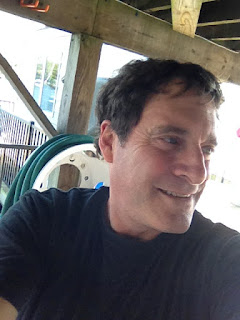Do you need to be like the hero?
I just received a wonderful email from Sarah, a reader in West Los Angeles, who bought the three new editions of the Lena Gamble novels and read through them in five days. She wanted to know how a male writer could create a female character with such clarity and realism. Her question eventually came down to this: Do you have to be like the people you write about?
I think it's a great question and extremely relevant today. Especially because there are two sides to the question Sarah’s raised. First, the easy answer. If you’re writing fiction, then you’re not writing an autobiography. I didn’t need to be a woman to write Lena Gamble just as Ann Biderman didn’t need to be a man to create a great tough guy like Ray Donovan. None of us need to be a bank robber or safe cracker to feature either one in a crime story. None of us need to be detectives or attorneys or doctors. To take it all the way out, none of us need to commit murder to write about a murderer. But what we all need to do is research, and a lot of practice working on the character’s voice.

Ann Biderman, Creator of Ray Donovan
The second answer to Sarah’s question is just as important to me because she’s put her finger on how I think most thrillers work. The reader needs someone in the story to identify with. Someone who isn’t a superhero that the reader can imagine might even be them. Someone who’s inexperienced and probably not prepared to be tossed into a world of characters and situations that are terrifying. It’s only my opinion, but I think we get pleasure out of seeing the story through their eyes and hoping they’ll survive the chaos until the end.
This is one of the main reasons I don’t spend much time describing the heroes in my novels. What does Lena Gamble look like? How about Matt Jones? You might find a paragraph or two in a single novel, but usually it’s a glossy depiction that can easily be missed. Why? Because I want readers to think they’re Lena and Matt.
Sarah, I can’t thank you enough for the question! Great timing, too! I’m so pleased you loved the Lena Gamble novels, and hope I’ve been able to add a bit of something to the discussion!
All best,
Robert
ROBERT ELLIS WRITERS BLOG
8



